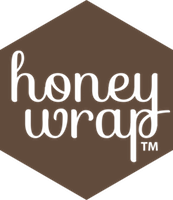June 12 2019 – Honeywrap Team
We asked Louisa from Project Jonah a few questions about her experience working for the organisation:
1. What do the different aspects of your job working for Project Jonah include?
We’re a team of two staff with a national charity to look after so our roles are mixed and varied (which I love!). Specifically I look after our volunteers, presenting and facilitating our Marine Mammal Medic training programme which we run nationally across the summer months, I look after our schools education programmes, supporter communication, all the social media and most importantly responding to whale and dolphin strandings around the country. Phew!

2. What Project Jonah-related memory has the most impact for you?
There are so many! Everybody remembers their first stranding and for me it was a young orca which was stranded at Te Arai beach, Mangawhai. I got the call late in the evening, so drove through the night, down an unmarked forest track (which is a story in itself) to get to the beach. It was freezing cold. Locals had got a truck down to the beach so we had some light and luckily it was a clear night and full moon. We spent a few hours getting this young whale into a set of rescue pontoons, ready for a refloat. I remember being fascinated by so many things – how a whales skin feels, how they smell, how loud they are when they breathe and most memorable was the sounds this whale was making to communicate with the rest of its pod which were waiting offshore. We usually wouldn’t refloat a whale at night but because conditions were so good, we got this whale in the pontoons and hooked it up to the local Surf Lifesaving boat. The whale was successfully refloated just after midnight. I remember being so happy I couldn’t sleep!

3. Is there anything you would say to someone new to learning about your organisation? What other ways can people get involved with helping our marine life?
Our marine mammals (whales and dolphins) are up against some really big challanges – increasing ocean temperatures, busier oceans, threats from fishing industries, food pressures and a massive amount of plastic in our ocean. We are an emergency response organisation – we’re there to help when whales get into difficulty, and we’re really good at coming together and responding to an emergency. But there is so much we can do in our daily lives to make theirs a little easier. Our choices directly impact the health of our oceans and the welfare of our marine mammals so its important we make good choices – refuse single use plastics, reuse what you can, think about what you’re eating – how it was produced and where it is from, think about how you travel and pick up rubbish when and where you can.

Tagged:

0 comments